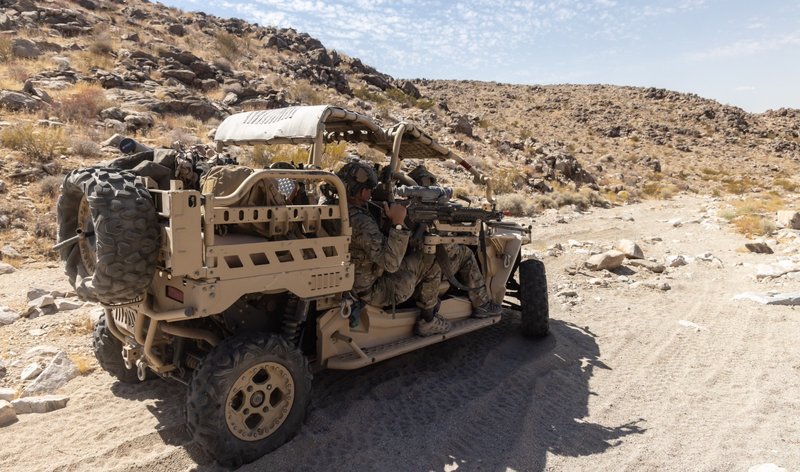
"We've moved patrol bases six times; done three or four deliberate assaults; and five or six straight-up reconnaissance missions where we find and fix the enemy and coordinate through the advanced operating base for fires," a Special Forces team sergeant explains. He's talking about his team's recent exercise at the National Training Center (NTC) located in the Mojave Desert in California.
The team, from the 10th Special Forces Group, is training for the next large-scale ground conflict, one that may see American soldiers fighting a peer or near-peer adversary for the first time since 1945.
"From an [Operational Detachment Alpha] level, we figure out how our Special Operations Forces skill set and talents nest within conventional forces’ methodology of fighting…where we can best support and enable their operations to set conditions for their success," the team sergeant said in an Army press release.
During the War on Terror years, the unconventional warfare and counter-insurgency specializations of Special Forces made them the weapon of choice however, in a large-scale conventional war it will be the "big" Army that wins the day with Special Forces playing a supporting role.
This isn't to say it is not an important role though. In World War II, the Jedburgh teams jumped into occupied France and conducted unconventional warfare and paved the way for the Allied invasion on D-Day. The Jedburghs didn't win the war, but they set the conditions for success.
With the future battlegrounds in mind, Special Forces are training closely with electronic warfare experts.
"We have [signals intelligence-electronic warfare analyst] and two Tactical Air Control Party Airmen from the U.S. Air Force attached to our team which we learned to employ," the team sergeant said. "The [analyst] has been pretty critical in terms of force protection—he's able to pick out the signals around us, see if there are threats in the area we need to be aware of—and confirm or deny targets."
The Special Forces team conducted direct action raids and reconnaissance operations, under the watchful eyes of Observer/Controllers who helped provide the team with after-action review pointers to help them improve in the field.
